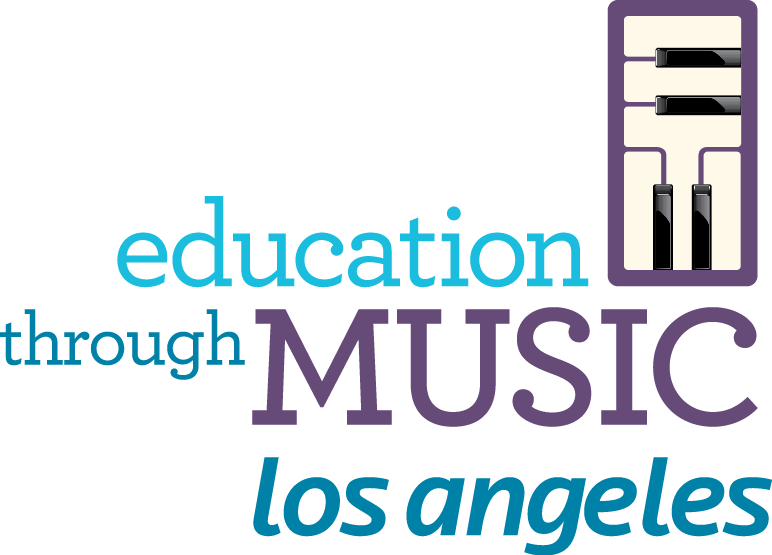Spotlight on Brandon Xue, Music Teacher
"I always plan classroom material based on what students deserve to learn, which often involves music and tools I’m unfamiliar with... Becoming a teacher has expanded my scope of musical understanding and ensures that I am always still involved in the learning process."

Why do you teach music?
I believe being a music educator opens up opportunities for students to explore ideas in a way that other classes do not offer. The goal of a well-rounded education aims to teach the whole student, not only to understand the content but to understand how to use their information to positively impact the world around them. Music allows students to explore these elements via experiencing, performing, and creating.
In my classes, students study multiculturalism by participating in music from all around the world, experience history through performing and discussing how music has cemented ideas throughout eras, and explore an alternative world of literacy by playing instruments and working with music technology. By allowing students to understand one another, and the world around us, and giving them a voice to express themselves, I strongly believe in the power of music education to bring out the best qualities in students. As a music educator, I have the pleasure of being a part of that process.
How has teaching impacted you?
I always plan classroom material based on what students deserve to learn, which often involves music and tools I’m unfamiliar with. I’ve spent countless hours discovering and researching music from different cultures, American music along with its historical implications (I’m Australian, so I admit I didn’t know a lot of it), and new music that students love. I learned to play the ukulele this year and extensively experimented with Garageband and Bandlab. Becoming a teacher has expanded my scope of musical understanding and ensures that I am always still involved in the learning process.
Why is music technology important for young students?
Music technology provides access to a creative medium that is up-to-date, offers a hands-on learning experience, and exposes students to a side of music that is often overlooked – production. For the last five years, R&B and Hip-Hop have dominated in popularity amongst all genres in the United States, with many young students being the primary audience. Although R&B and Hip-Hop are far from being the only genres that benefit from music technology, students can quite easily learn to put together a simple beat and write some rhymes. They don’t have to know exactly how to play instruments, and they don’t necessarily have to sing either. Music technology’s ease of access, in addition to enthusiasm for such musical styles, encourages students to participate and create like nothing else offered in the music classroom.
How do you approach music lessons for a subjective art form like music production?
Beginning music lessons on music technology serve to familiarize students with the program being used. I show students how to create tracks, choose instrument sounds, browse loops, etc. For song projects, I provide rubrics and dates for certain elements in the song to be completed so that students stay on track and understand expectations. For beginners, more restrictions may be beneficial in leading students through the typical use of the program so that there is a strong sense of direction.
For each lesson I would introduce an element and students would spend the majority of the class time experimenting and creating. For example, I may show students how to make a simple drum pattern using the grid so they feel comfortable with its use, but make a point that they have creative freedom when it comes to their project. I may demonstrate in front of the class how to add a loop to my song and ask for their feedback on whether they think it fits with the rest of my song, and assess their reactions to different examples. This encourages students to self-monitor their work by assessing their own creative choices, and also creating an expectation for workflow. Too many restrictions can hinder creativity, but a complete lack of restriction can cause a lack of direction. My job is to ensure that students understand how to employ the use of musical devices offered in the program and to find a happy balance between information and inspiration.
Are there any beginner or foundational music technology activities or lessons you would recommend to fellow educators?
A foundation in music literacy can be very beneficial for students in their music technology activities. Grids that are used in drum machines rely on an understanding of subdivisions, pitched MIDI layouts closely resemble the musical staff, and multiple tracks also draw parallels to a conductor’s musical score. Since music technology relies heavily on visuals, a student’s experience with music literacy will likely determine how quickly music technology concepts are understood.
I have also found the use of active listening activities to be very useful, following explicit instruction on song elements. Students in my classroom listen to an eclectic selection of songs and do their best to describe the music as intricately as possible. For example, how many instruments did you hear? What were they? What was the tempo of the song? What was the overall mood? How was that achieved? Could you describe the form?
The better a student’s attention to detail while listening to music, the more elements they will be aware of in their music once they start creating.
Considering the practical skills of music technology in any modern music career, what advice do you have for those who wish to be more relevant with their students in their music classroom or at home?
Music technology has become more accessible and relevant than ever. Modern producers are making hit songs in bedrooms, musicians are recording themselves remotely and composers are writing scores in notation software. Nowadays, music technology is ubiquitous among all professional musicians so much that music educators would be remiss to not include its study in a music curriculum. In the classroom, music technology can also be used to reinforce literacy skills and encourage creativity. For music educators who have access to devices, the inclusion of music technology in the curriculum should be seriously considered by those who want to be more relevant with their students in the music classroom.






